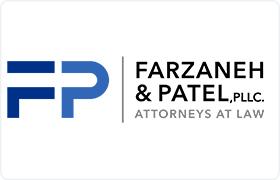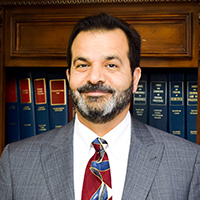Luther Estate Lawyer, Oklahoma
Sponsored Law Firm
-
 x
x

Click For More Info:
-
Farzaneh & Patel, PLLC.
1025 SW 4th St. Suite 201 Moore, OK 73160» view mapEstate Law Ready To Help Every Day
With 40 years of combined legal experience, Farzaneh and Patel Law Firm can handle anything from simple estate issues to the most complex estate cases.
800-853-7180
Daniel Loeliger
✓ VERIFIEDAccident & Injury, Estate, Wills & Probate, Trusts, Car Accident
Daniel Loeliger is a practicing lawyer in the state of Oklahoma. Mr. Loeliger received his J.D. from the University of Oklahoma.
Robert J. Wagner
✓ VERIFIEDAccident & Injury, Divorce & Family Law, Employment, Estate
Rob grew up in the St. Louis area, studied Photojournalism, opened and owned a business in Columbia Missouri; Graduated form OCU Law School (JD 1995),... (more)
Randy Bumgarner
✓ VERIFIEDDivorce & Family Law, Bad Faith Insurance, Criminal, Accident & Injury, Estate
FREE CONSULTATION
CONTACTThomas B. McLemore
Bad Faith, Estate Administration, Estate Planning, Business Organization
Status: In Good Standing
Joseph J. Reinke
Business Organization, Environmental Law, Estate Planning, Insurance
Status: In Good Standing
FREE CONSULTATION
CONTACTWilliam T. Brett
Real Estate, Estate, Divorce & Family Law, Bankruptcy & Debt
Status: In Good Standing
FREE CONSULTATION
CONTACTScott D. Caldwell
Family Law, Wills & Probate, International, Workers' Compensation
Status: In Good Standing
 Amir Farzaneh Moore, OK
Amir Farzaneh Moore, OK Practice AreasExpertise
Practice AreasExpertise



